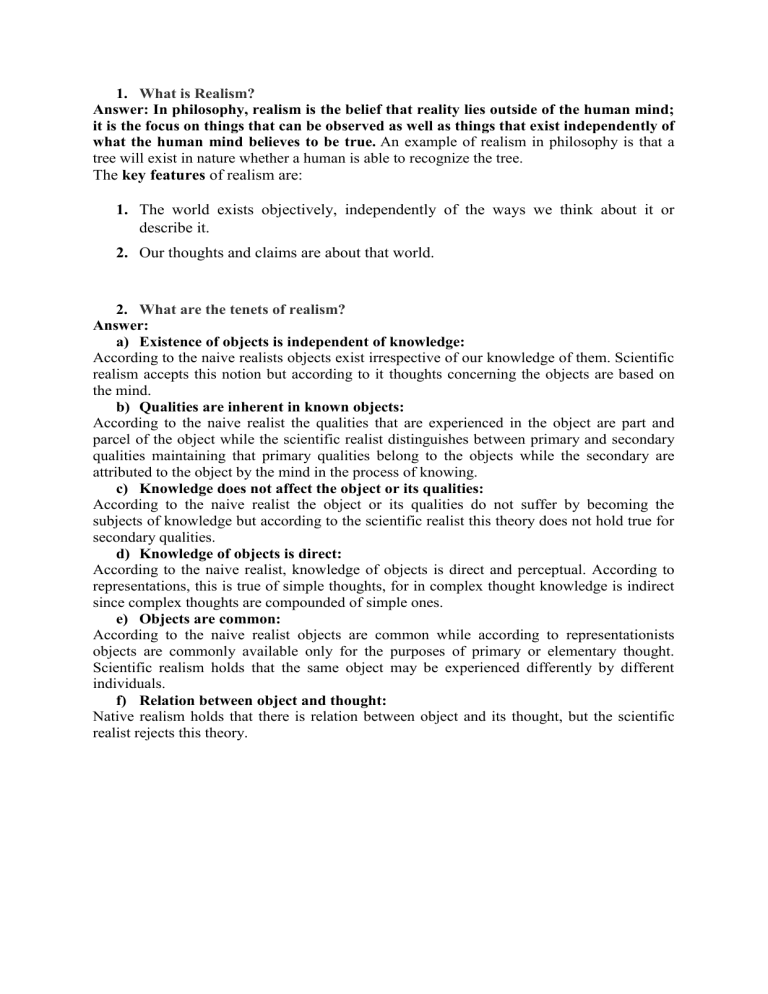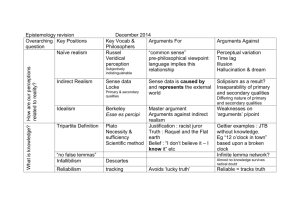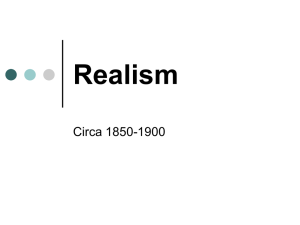What is Realism? What are the tenets of Realism?
advertisement

1. What is Realism? Answer: In philosophy, realism is the belief that reality lies outside of the human mind; it is the focus on things that can be observed as well as things that exist independently of what the human mind believes to be true. An example of realism in philosophy is that a tree will exist in nature whether a human is able to recognize the tree. The key features of realism are: 1. The world exists objectively, independently of the ways we think about it or describe it. 2. Our thoughts and claims are about that world. 2. What are the tenets of realism? Answer: a) Existence of objects is independent of knowledge: According to the naive realists objects exist irrespective of our knowledge of them. Scientific realism accepts this notion but according to it thoughts concerning the objects are based on the mind. b) Qualities are inherent in known objects: According to the naive realist the qualities that are experienced in the object are part and parcel of the object while the scientific realist distinguishes between primary and secondary qualities maintaining that primary qualities belong to the objects while the secondary are attributed to the object by the mind in the process of knowing. c) Knowledge does not affect the object or its qualities: According to the naive realist the object or its qualities do not suffer by becoming the subjects of knowledge but according to the scientific realist this theory does not hold true for secondary qualities. d) Knowledge of objects is direct: According to the naive realist, knowledge of objects is direct and perceptual. According to representations, this is true of simple thoughts, for in complex thought knowledge is indirect since complex thoughts are compounded of simple ones. e) Objects are common: According to the naive realist objects are common while according to representationists objects are commonly available only for the purposes of primary or elementary thought. Scientific realism holds that the same object may be experienced differently by different individuals. f) Relation between object and thought: Native realism holds that there is relation between object and its thought, but the scientific realist rejects this theory.


